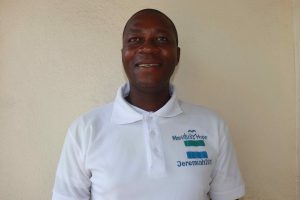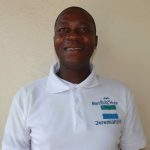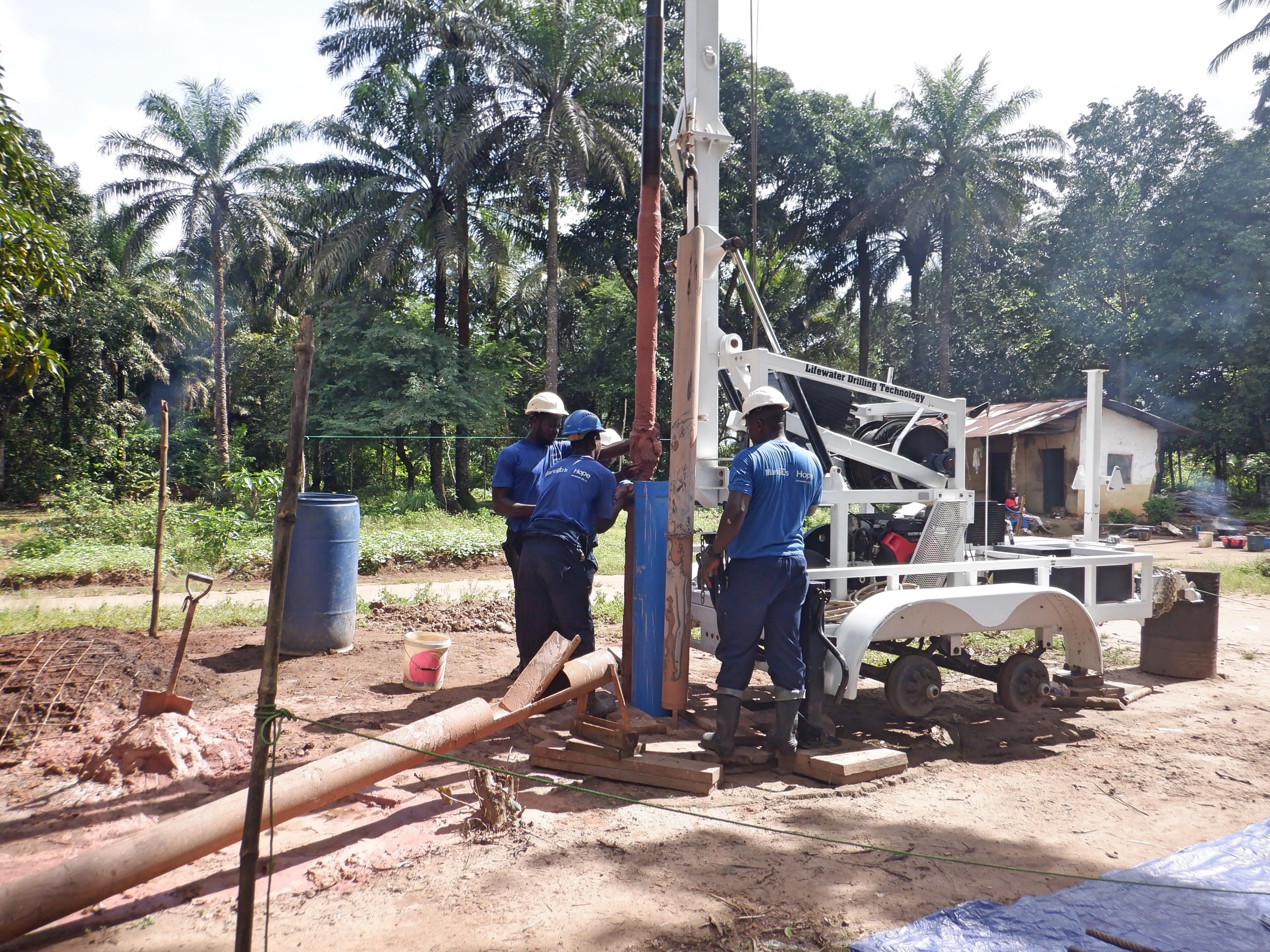"I would like to inform you about the water crisis in my village," said 58-year-old farmer Yainkain Bangura (pictured below carrying water). "We need clean water to wash, to cook our food, to drink, and most importantly, to water our crops. If we have no water, [even] for a short period of time, then our crops will wither and die, and most people will go without food or money from selling the crops."
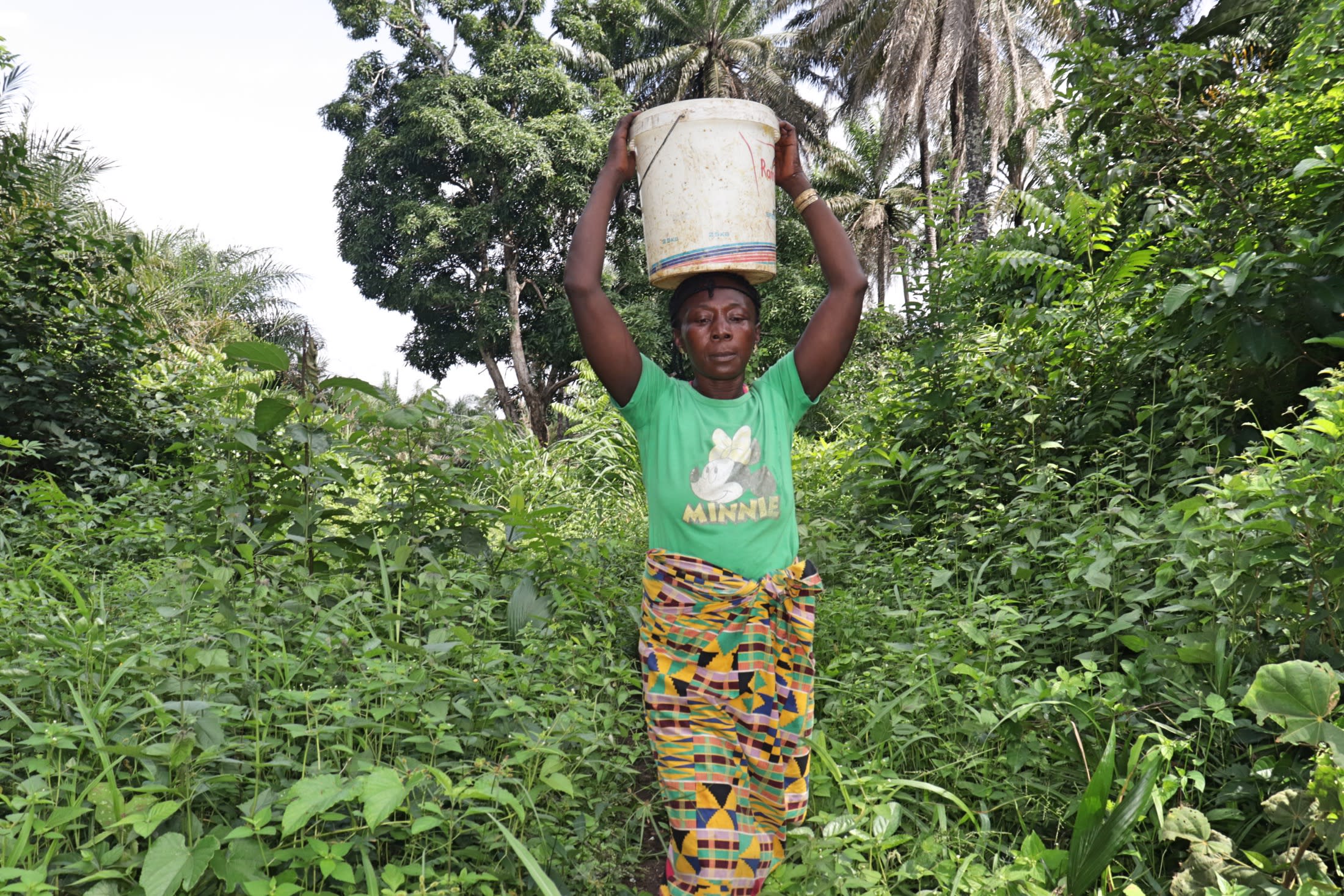
The well in Ponka no longer yields water because the population in this once-small village keeps ballooning upward. The simple hand-dug well dried up due to all the demand. The only alternatives are an overcrowded faraway well in a neighboring community or the local swamp.
"I must make two or more trips of water before going to school," said 14-year-old Fatmata B (shown below). "My first attempt would be at the pump, which is about [a] five to ten minutes walk away from my home. Only that the pump is so overcrowded in the morning hours, and I must be in queue for about forty-five (45) minutes before I could access the water. This situation causes me to spend so much of my time at the pump and not be able to fetch water."
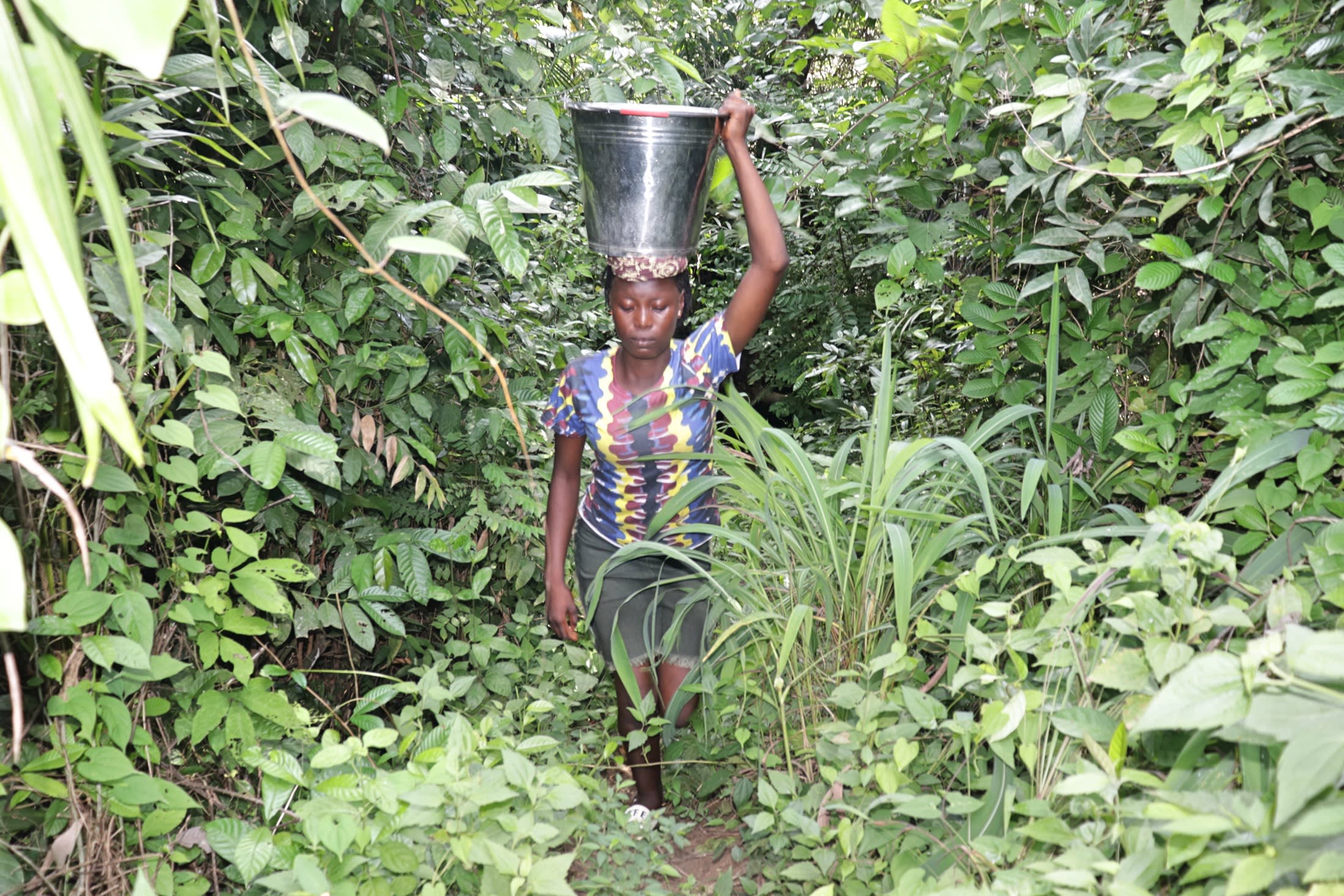
"I would prefer to go to the stream to fetch water," Fatmata continued. "The stream is not overcrowded, only it is [a] distance away from the community. [It] takes me about 30 minutes to get a single trip [of] water. And sometimes, I must bathe at the stream immediately before getting water. That helps me not to be in school late. Although the water is contaminated, because of less time spent, I prefer to use it for domestic activities."
"The environment [around the swamp] is not safe and favorable to fetch water," said our field officer, Moses. "There are lots of contaminants in the water source environment, and [it] is terrible to access. [There are] harmful practices taking place in the water source environment like bathing, laundering of clothes, and farming. On my visit to the water source, I noticed that [there] are animals in this environment, such as snakes, rats, and frogs."
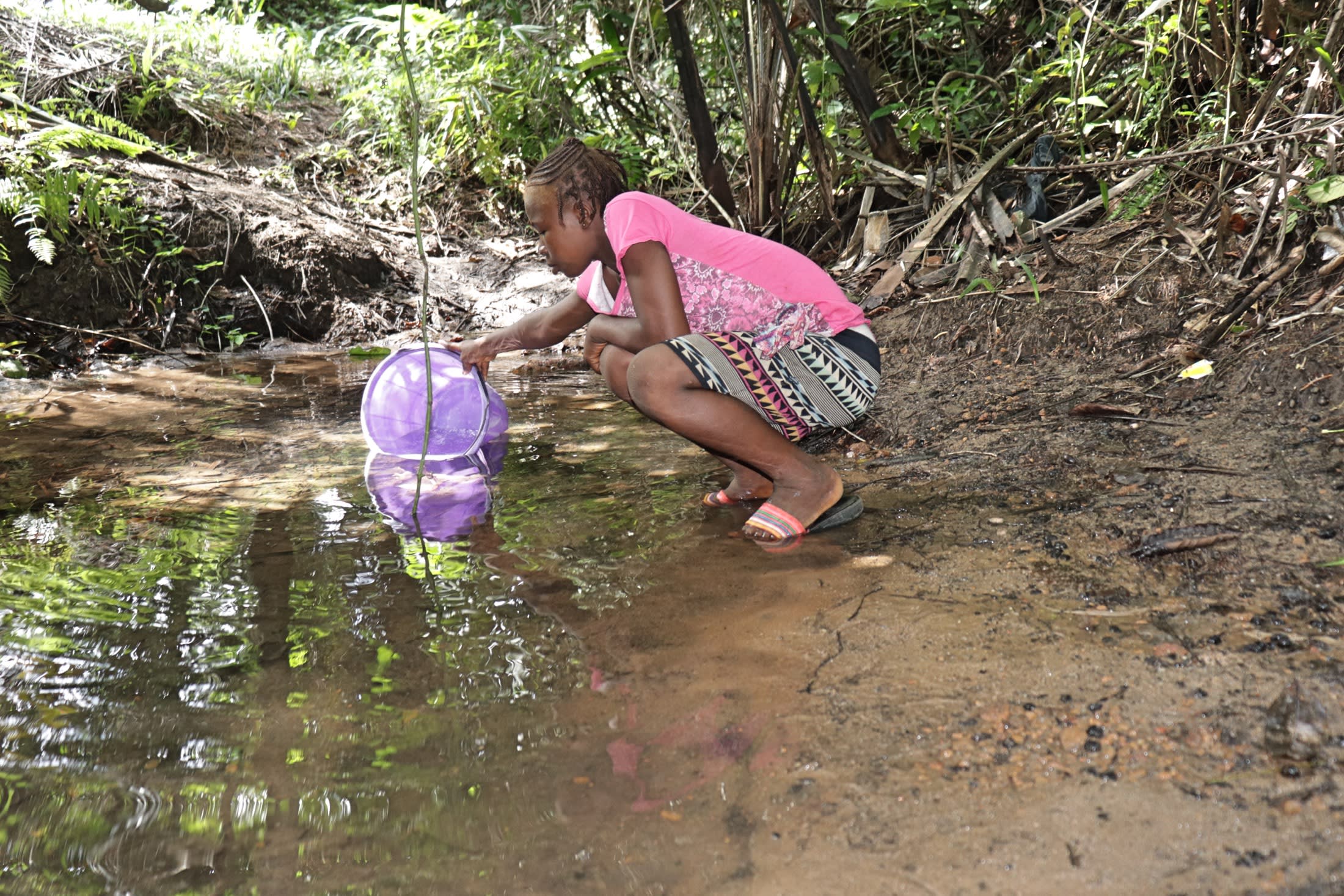
As she explained, Fatmata knows the water from the swamp makes her family sick. But faced with even more time fetching water, she will always choose to collect water where less of her precious time and energy will be spent. It is also common for quarrels and even physical altercations to break out at the well, which would be frightening for a young girl just trying to help her family.
However, using the swamp water has consequences.
"The village has many cases of ill health caused mainly by waterborne diseases such as typhoid, dysentery, and cholera," Moses explained. "Malnutrition is common due to low incomes and general poverty in this community. Food crop production is impossible because of inadequate safe and pure water. The community people wash clothes, bathe, and cultivate crops in the stream environment. That contributes to contaminating the water."
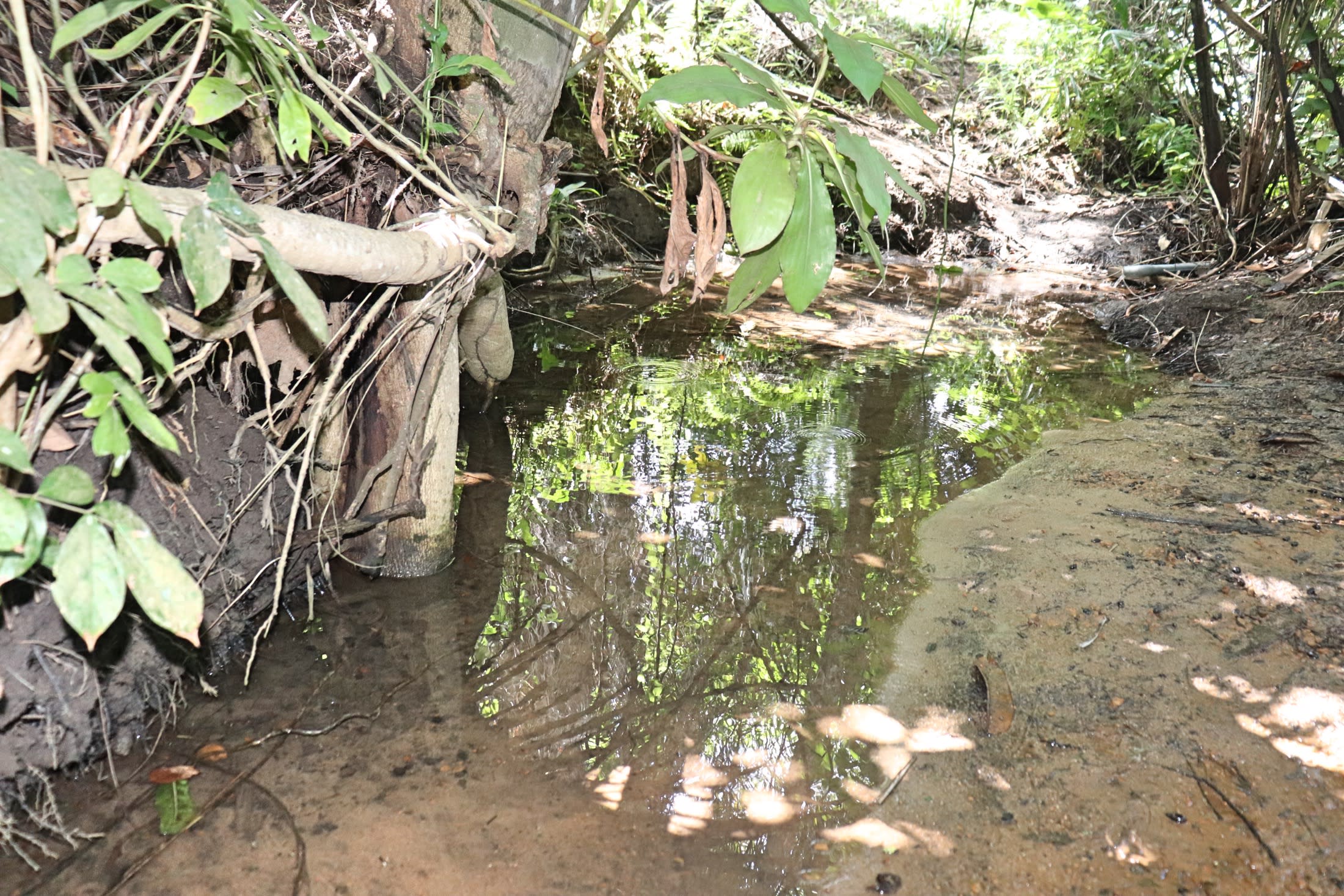
All this carrying, fetching, and waiting weighs heavily on the women and children of Ponka, who shoulder the burden of water-collection for their families. By the end of the day, Fatmata doesn't have enough energy to do her homework.
"Clean water helps free children from deadly and preventable diseases," Moses said. "It liberates women and children from long hours spent gathering dirty, contaminated water. Clean water restores health and opens the door to education, a promising future, and the kind of life God intends for his children."
"We all work together, and together we will succeed," Yainkain said. "I will be happy to have this water source rehabilitated for us."
"I will be happy if we could have another water source in this community," Fatmata concluded.
Here’s what we’re going to do about it:
Well Rehabilitation
The well marked for this overhaul is dry for a few months every year and needs major work to supply adequate, clean water to the community year round. The pump will be removed, and a hand auger will be lowered inside and powered by a drill team. This hand auger will allow the team to drill several meters deeper to hit a sufficient water column that will ensure the well supplies water throughout all seasons.
As the team drills, casing will be installed, transforming the bottom of this hand-dug well into a borehole. PVC piping will connect this lower system directly to the pump, a construction that we know will also improve the quality of water.
Once this plan is implemented, everyone within the community will have access to safe drinking water in both quality and quantity, even through the dry months.
Hygiene and Sanitation Training
There will be hygiene and sanitation training sessions offered for three days in a row.
After our visit, the hygiene and sanitation trainer decided it would be best to teach community members how to build a tippy tap (a hand-washing station built with a jerrycan, string, and sticks). They will use these tippy taps for handwashing demonstrations, and will also teach about other tools like dish racks and the importance of properly penning in animals.
These trainings will also strengthen the water user committee that manages and maintains this well. They enforce proper behavior and report to us whenever they need our help solving a serious problem, like a pump breakdown.





 Borehole Well and Hand Pump
Borehole Well and Hand Pump









